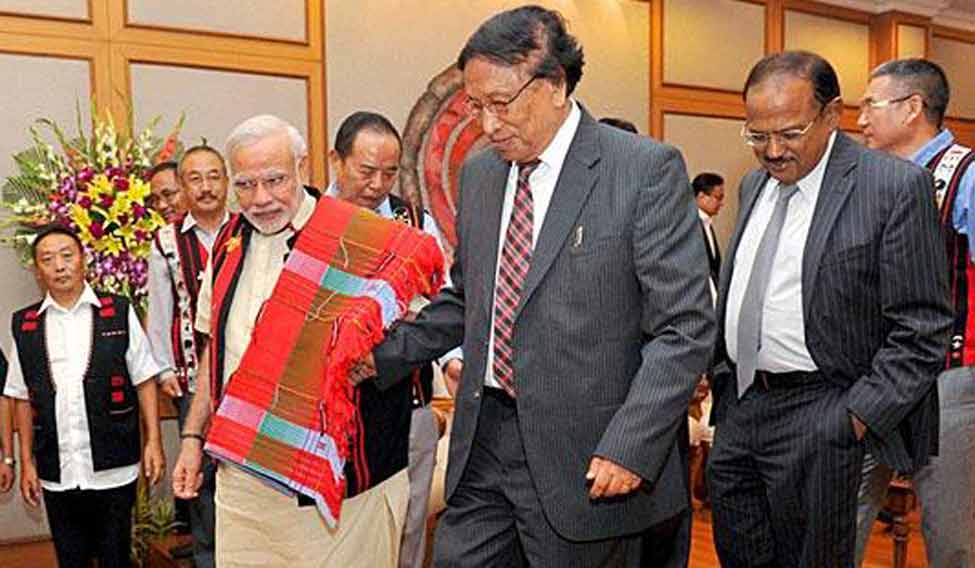Even as the much-anticipated Naga peace accord between the Modi government and the Nationalist Socialist Council of Nagaland-Isak-Muivah (NSCN-IM) awaits final touches, the government has appointed a new chairman for the Cease-Fire Supervisory Board (CFSB) to monitor the implementation of the agreed ground rules during the operation of ceasefire with NSCN-IM, NSCN-Khaplang(K) and NSCN-R (Reformation) in Nagaland.
Former BSF chief D.K. Pathak has been appointed chairman of the group for one year or until further orders.
With Pathak's appointment, all eyes are on the Naga peace process and on how soon the Union government will be able to implement its promise of a final settlement of the decades-old Naga insurgency problem. Pathak succeeds Lt Gen (Retd) N.K. Singh who had already got three extensions.
On August 3 last year, the government signed a historic peace accord with Nagaland's insurgent group NSCN-IM. The announcement was made during an event at 7 Race Course Road in the presence of Prime Minister Narendra Modi, Home Minister Rajnath Singh, government officers and NSCN-IM chief Thuingaleng Muivah and other leaders of the group.
Muivah said, "I thank God for this momentous occasion. Naga people have great respect for Mahatma Gandhi. We appreciate the statesmanship of (former PM) Atal Bihari Vajpayee." Terming it a historic agreement, Modi said, "Unfortunately, the Naga problem has taken so long to resolve because we did not understand each other."
NSCN was formed by Isak Chishi Swu, Thuingaleng Muivah and S.S. Khaplang in early 1980, opposing the Shillong Accord signed by the then Naga National Council with the Union government. The objective of the group was to establish a sovereign nation called Nagalim through insurgency.
While the NSCN and the Union government had agreed to hold talks and declared ceasefire on multiple occasions, nothing concrete had emerged. It was in 1988 that the NSCN split into two groups—NSCN (Isak-Muivah) and NSCN (Khaplang)—over disagreement between the group leaders holding peace talks with the government. In 2015, the NSCN-K broke its peace pact with the government and split into two.





